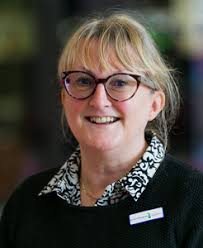In this thought-provoking article, Dr Sue Allingham asks what do we mean by Developmentally Appropriate Practice?
I wonder how many times a week we hear the words ‘development’ or ‘developmentally’, or see them written in a document or article. In our profession I wouldn’t be at all surprised if a rough tally would show that it is several times a day. After all, one of our non-statutory guidance documents has the word in its title. We are even told that development ‘matters’. But what does that mean in or look like day to day in our settings and schools? How is the word ‘development’ interpreted? Is there a consistent interpretation and understanding?
Children develop quickly in the early years, and early years practitioners aim to do all they can to help children to have the best possible start in life. Children have a right, spelled out in the United Nations Convention on the Rights of the Child, to provision which enables them to develop their personalities, talents and abilities irrespective of ethnicity, culture or religion, home language, family background, learning difficulties, disabilities or gender.
This guidance helps adults to understand and support each individual child’s development pathway.

In contrast to this and written by different people, the completely new version of that non-statutory guidance, now known as Development Matters – Non-statutory curriculum guidance for the early years foundation stage (2021) opens with –
Development Matters is for all early years practitioners, for childminders and staff in nurseries, nursery schools, and nursery and reception classes in school. It offers a top-level view of how children develop and learn. It can help you to design an effective early years curriculum, building on the strengths and meeting the needs of the children you work with.
It guides, but does not replace, professional judgement.
Notice the similarities and differences with how the word ‘development’ is used, and what is perceived as ‘developmentally appropriate’. I would suggest that, over the ten years between each of these publications, there has been a subtle, but marked shift in how both ‘development’ and ‘appropriate’ are defined in the policy and guidance that we work within Early Childhood Education and Care.
The first document talks about ‘developmental pathways’ and what must inform them. The basis of all of this is knowledge about the child and their family – individuality is key to understanding development.
There is a different flavour to the second extract. In both pieces the adults are tasked with developing children, but in the second the emphasis has shifted towards the idea of a ‘top level view of how children develop and learn’ which will underpin the development of an ‘effective early years curriculum’.

I need to be absolutely clear here that I think it is vital that we understand what is meant by curriculum, because we must understand what we are teaching and why. The word ‘curriculum’ is a key part of our professional vocabulary and skill. What I want to explore is how we inform this so that what we plan can be the best it can possibly be for the children and not limiting or capping learning.
For me there is a difference between ‘developmental pathways’ and a ‘top level view’. Neither are wrong if reflected on with a wide perspective. This will be reflected upon in my forthcoming Kinderly webinar by asking ‘What is developmentally appropriate practice?’ What do we mean by it, and is there a more useful way of describing our practice and provision?

Dr Sue Allingham started her career as a teacher and an Early Years Lead before becoming a Local Authority Early Years Adviser. Moving into research, Sue gained an MA then a Doctorate, both in Early Childhood Education. She is now an Independent Consultant, Author and Trainer, with publications on Transitions in the Early Years and Emotional Literacy in the Early Years.